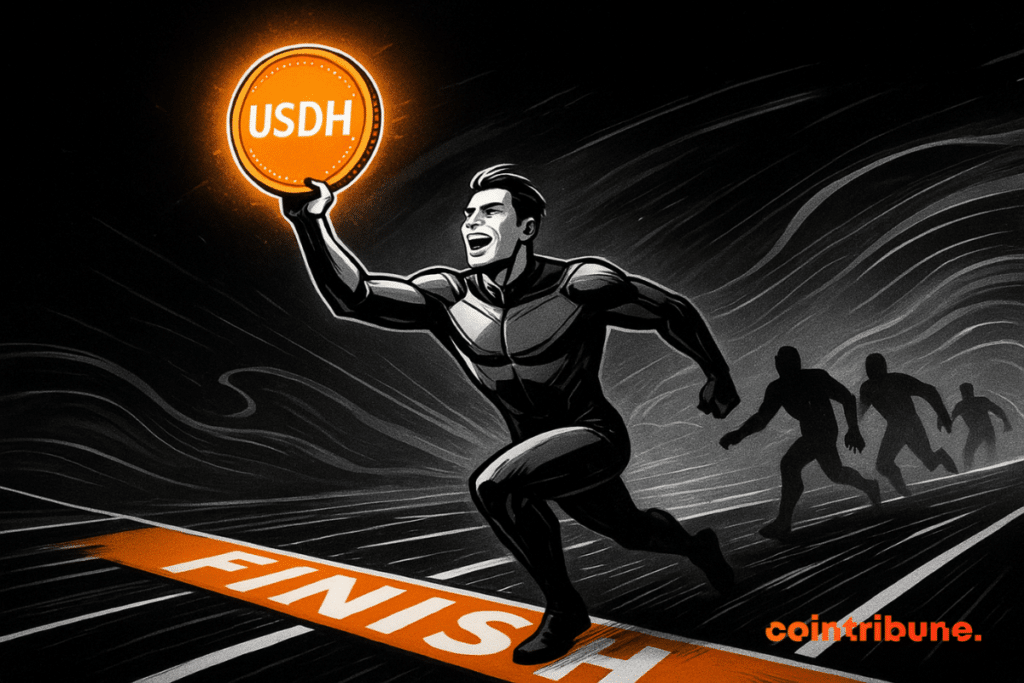Native Markets Beats Top Industry Players to Secure USDH Stablecoin Rights on Hyperliquid
Native Markets has won the race to issue and manage Hyperliquid’s dollar stablecoin after securing the USDH ticker following a heated week-long bidding process. The governance contest, which saw top industry players like Paxos and BitGo place bids, has sparked several reactions among many within the crypto industry.

In brief
- Native Markets secures rights to issue USDH stablecoin after heated bidding on Hyperliquid.
- USDH will be backed by U.S. Treasuries and cash, with reserves managed by BlackRock and Superstate.
- Rollout begins with capped testing of $800/tx before opening uncapped mints, redeems, and spot trading.
- Governance process faces criticism, with claims of bias and stablecoins seen as evolving into commodities.
Native Markets Wins Bid to Launch USDH on Hyperliquid
The decision was reached on Sunday following weeks of speculation and bidding, during which one of the top contenders, Ethena, pulled out of the race. Polymarkets gave Native Markets a 99% chance of winning the contest after Ethena exited the bidding process on Thursday, citing issues with its non-native infrastructure.
In a recent X post, Native Markets founder Max Fiege detailed plans to roll out the Hyperliquid Improvement Proposal (HIP) for USDH and an Ethereum-powered ERC-20 token soon.
He also revealed that the protocol will soon kickstart the testing phase, during which users can mint and redeem the USDH. This will be followed by uncapped USDH/USDC spot trading. According to the team, the capped test phase is a necessary safety measure before going fully mainstream.
We will then start with a testing phase for mints and redeems of up to $800/tx with an initial group, to be followed by the opening of the USDH/USDC spot order book as well as uncapped mints & redeems.
Max Fiege
Hyperliquid’s HyperEVM network will issue USDH stablecoin, while reserves will be stored in a mix of on-chain and traditional assets. The yield from those reserves will be channeled towards HYPE token buybacks and programs focused on growing USDH adoption.
As part of the proposal, the USDH will be fully backed by cash and U.S. Treasuries, with BlackRock managing the traditional reserves and Superstate (via Stripe’s Bridge) handling the on-chain reserves.
Controversy Erupts Over Hyperliquid’s USDH Governance Vote
Outside regular listing events, the USDH governance bidding became Hyperliquid’s first major platform vote. Native Markets was among the first platforms to send in a pitch, doing so a little over an hour after Hyperliquid’s announcement.
Even though the Hyperliquid Foundation did not participate in the vote, several top players and the broader community closely followed the selection process for rights over the USDH. However, some within the industry have raised concerns over a rigged voting process, and by extension, the stablecoin’s future.
Haseeb Qureshi, a partner at the VC firm Dragonfly, criticized USDH’s request-for-proposals (RFP) process as a “farce.”
Hearing from multiple bidders that none of the validators are interested in considering anyone besides Native Markets. It’s not even a serious discussion, as though there was a backroom deal already done.
Haseeb Qureshi
Meanwhile, the CEO of remote procedure call (RPC) node provider Helius Mert Mumtaz maintained that the bidding process revealed how stablecoins are increasingly becoming more like commodities.
He added that exchanges won’t display the different tickers of dollar-pegged stablecoins in the future. Instead, users will see a single “USD” balance, while the exchange handles which stablecoin is used behind the scenes.
Maximize your Cointribune experience with our "Read to Earn" program! For every article you read, earn points and access exclusive rewards. Sign up now and start earning benefits.

James Godstime is a crypto journalist and market analyst with over three years of experience in crypto, Web3, and finance. He simplifies complex and technical ideas to engage readers. Outside of work, he enjoys football and tennis, which he follows passionately.
The views, thoughts, and opinions expressed in this article belong solely to the author, and should not be taken as investment advice. Do your own research before taking any investment decisions.